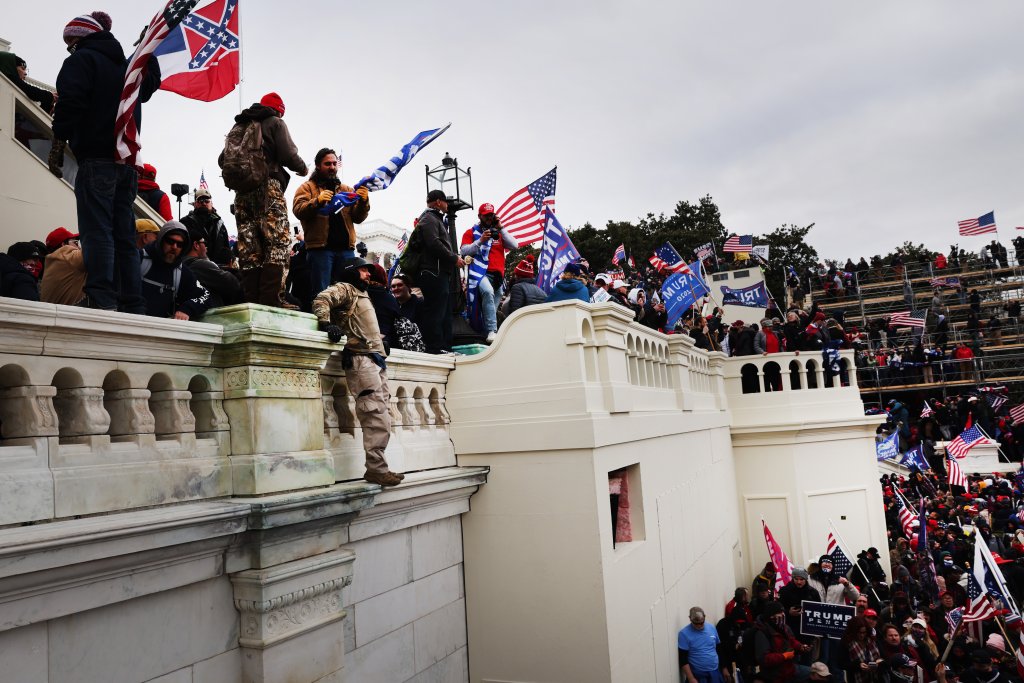As Donald Trump campaigns to reclaim the presidency, Democrats assert that his involvement in the January 6, 2021, Capitol riot must remain a critical consideration for voters. Representative Mikie Sherrill, a Democratic incumbent in New Jersey’s 11th District, is staunchly opposed to her Republican challenger, Joe Belnome, citing his participation in the rally that preceded the assault on the Capitol as a disqualifying factor. Sherrill argues that any candidate who champions the unfounded belief that Trump, not Biden, won the 2020 election lacks the qualifications necessary to uphold the Constitution. She emphasizes that the acceptance of election results and the principle of a peaceful transfer of power are fundamental ideals that anyone running for office must uphold. The Capitol riot serves as a stark reminder of the fragility of democracy and the dangers posed by candidates who disregard its tenets.
In the wake of the January 6 insurrection, initial criticism of Trump from even his allies was evident; however, as he pursues another presidential bid, Trump and his supporters have minimized the severity of the events. They charge that Democrats have exaggerated the incident and allege that prosecutors have misused the justice system to target Trump. Meanwhile, figures like State Senator Joe Pennacchio, who co-chaired Trump’s 2020 campaign, argue that many individuals present at the Capitol were exercising their First Amendment rights rather than engaging in violence. He warns against labeling all protest attendees as insurrectionists, suggesting that such generalizations undermine the very foundation of American democratic freedoms.
As the upcoming election looms, there is a pronounced division among voters regarding the relevance of January 6, indicating a clear disparity between Democratic and Republican perspectives. Democrats continue to focus on Trump’s actions and the need for accountability surrounding the insurrection, while many Republicans prefer to sidestep the topic. Micah Rasmussen, director of the Rebovich Institute for New Jersey Politics, notes that some Republican voters are still affected by the January 6 fallout, though they might not openly express their concerns. Sherrill’s campaign has effectively branded Belnome as “Jan. 6 Joe,” leveraging the incident to highlight contrasting views on patriotism and democracy between her and her opponent.
Polling indicates that a significant majority of Americans view the upcoming election as pivotal for democracy, although interpretations of who poses a greater threat differ based on party affiliation. As discussions unfold about the possibility of another violent event similar to January 6, Representative Josh Gottheimer chairs a bipartisan initiative aimed at fostering unity and ensuring all elected officials respect the electoral process, regardless of the outcome. Gottheimer’s experiences reflect a broader anxiety shared by voters across the political spectrum, emphasizing that concerns about political violence remain very real even four years after the Capitol riot took place.
Despite some Republicans asserting a belief that the fear surrounding January 6 has been politicized, voices within the Democratic party maintain that the event’s implications should not be forgotten. Sherrill, for instance, actively speaks out against the normalization of apathy following such disruptions to democracy. She vividly recalls the panic and chaos of that day, in stark contrast to the impression some voters might have of it fading into history. Drawing on her experiences, she urges voters to remember the preciousness of democratic systems, warning that the collapse of democracy can lead to lasting consequences that are incredibly difficult to reverse.
These discussions also raise important questions about the collective memory of American politics and the necessity of accountability. With elections on the horizon, the differences in how candidates approach the subject of January 6 may play a crucial role in shaping voter sentiment. As candidates gear up for their campaigns, the stakes extend beyond personal ambitions, reflecting a larger existential battle over the preservation of democratic norms and the health of American political discourse. Sherrill’s proactive stance and calls for ongoing vigilance echo a broader sentiment within the Democratic party and among concerned citizens: that the fight for democracy requires constant attention and a rejection of silence in the face of threats.

